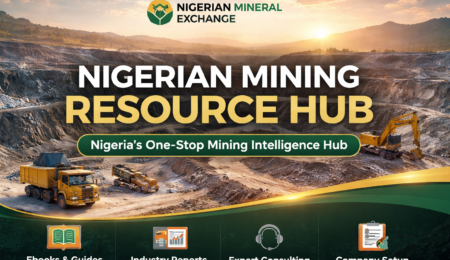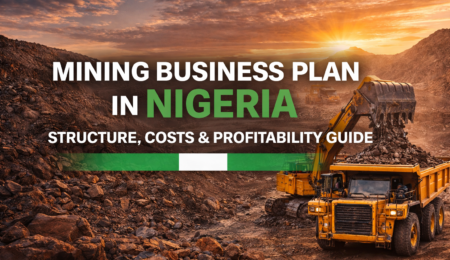The Nigerian mining sector is full of promise, but it is not for the faint of heart. While the potential for wealth is immense, the path to a profitable operation is fraught with a unique set of challenges. From security concerns to financing hurdles, the country’s mining landscape demands a clear-eyed approach and a strategic mindset.
This guide provides an honest, comprehensive look at the top 10 challenges facing miners in Nigeria, and more importantly, offers actionable solutions to overcome them. By understanding these obstacles, you can build a more resilient and profitable business.
1. Security & Illegal Mining
This is, by far, the biggest challenge. Mineral-rich states like Zamfara, Kaduna, and Plateau have faced significant security challenges from armed bandits and criminal syndicates who profit from illegal mining. The government loses an estimated $9 billion annually to these activities, which also fuel violence and community conflicts.
- How to Overcome: Operate legally and secure the right mineral titles. The government’s new policy and the deployment of the Mining Marshals are designed to protect licensed operators. Engage your host community with a legally binding Community Development Agreement (CDA), and for serious investors, consider engaging private, licensed security firms for on-site protection.
2. Limited Access to Financing
Access to capital is a major hurdle. Commercial banks in Nigeria are often hesitant to provide loans to mining companies due to the high perceived risk and the long gestation period of mining projects. As an expert in the industry put it, financing in the sector is often “ad-hoc” and “family-driven.”
- How to Overcome: Leverage government-backed funds like the Solid Minerals Development Fund (SMDF) and the Bank of Industry (BOI)’s specific financing products for miners. Present a bankable, professional business plan to attract serious investors or loans.
Our ebook, Funding and Financing Mining Projects in Nigeria, is your ultimate resource to navigate this world. It provides a game-changing guide on how to structure a business plan, create financial models, and pitch your project to investors and financial institutions.
3. Regulatory & Bureaucratic Hurdles
The process of obtaining licenses and permits from agencies like the Mining Cadastre Office (MCO) can be complex and time-consuming. Inconsistent policies and bureaucratic bottlenecks can lead to frustrating delays and increased costs, and corruption remains a major concern.
- How to Overcome: Don’t go it alone. The most effective way to navigate this labyrinth is to engage a professional consultant or a licensing agent with a deep understanding of the system. Their expertise can save you months of delays and frustration.
4. Infrastructure Deficit
The lack of critical infrastructure, particularly in remote mining areas, poses a significant challenge. Poor road networks increase transportation costs, while an unreliable power supply drives up operational costs due to a reliance on expensive generators, which can account for up to 40% of operating expenses.
- How to Overcome: Plan for phased investment in infrastructure and consider building a dedicated access road. For power, consider decentralized renewable energy solutions like solar to reduce your dependency on generators.
5. Insufficient Geoscientific Data
The lack of detailed, modern geoscientific data is a major deterrent for large-scale investors. While the Nigerian Geological Survey Agency (NGSA) has made progress, the available data is often outdated, incomplete, or not in a format that allows for accurate resource estimation. This increases exploration risk and cost.
- How to Overcome: Conduct a comprehensive, on-the-ground geological survey. While this is an additional cost, it is a non-negotiable step for any serious investor.
6. Inadequate Skilled Labor
The sector suffers from a critical shortage of trained professionals, including geologists, mining engineers, and other technical experts. The dominance of a largely informal, unskilled workforce leads to inefficient operations and safety issues.
- How to Overcome: Budget for and hire certified professionals from the outset. Engaging with universities and technical colleges to secure talent is a viable strategy.
7. Environmental Degradation
Illegal mining, particularly by informal miners using hazardous chemicals like mercury and cyanide, has led to severe environmental degradation, including land and water pollution. Legal operators face the burden of mandatory and costly Environmental Impact Assessments (EIAs) and reclamation plans.
- How to Overcome: Embrace environmental compliance as a core business principle. A well-executed environmental plan not only meets legal requirements but also attracts ethical investors and builds trust with host communities.
8. Community Conflicts & Land Ownership
Community disputes over land ownership are a major challenge, as mineral rights are vested in the Federal Government while land ownership is a state matter. This can lead to conflicts and resistance from communities who fear losing their farmland.
- How to Overcome: Proactively engage with host communities from the start. A formal and legally binding Community Development Agreement (CDA) is mandatory and crucial for fostering trust and ensuring a peaceful operating environment.
9. Difficulty in Sourcing Legitimately
For traders and exporters, a major challenge is sourcing minerals from legitimate, legally-compliant miners. The fragmented nature of the market and the prevalence of illegal operators make due diligence difficult and risky.
- How to Overcome: Insist on seeing all legal documents from your suppliers, including a valid mineral title and a “Permit to Possess and Purchase Minerals.” Utilize the Nigerian Mineral Exchange, which provides a verified platform to connect with licensed and legitimate miners.
10. Challenges with Value Addition
The government is pushing for in-country beneficiation to capture more value from minerals. While this is a good policy, it creates a new challenge for investors who must now budget for processing plants and the associated technology, expertise, and capital.
- How to Overcome: Treat value addition as a high-margin business opportunity, not a burden. By investing in a processing plant, you move up the value chain, capture more of the final product’s value, and position your company for higher profits.
If you are a serious investor who wants to move quickly and avoid the hidden costs of red tape, our Mining & Mineral Trading Company Setup (Nigeria) service is a done-for-you solution that handles every aspect of your legal and regulatory setup, saving you time and money.

READ ALSO:





Leave a Reply